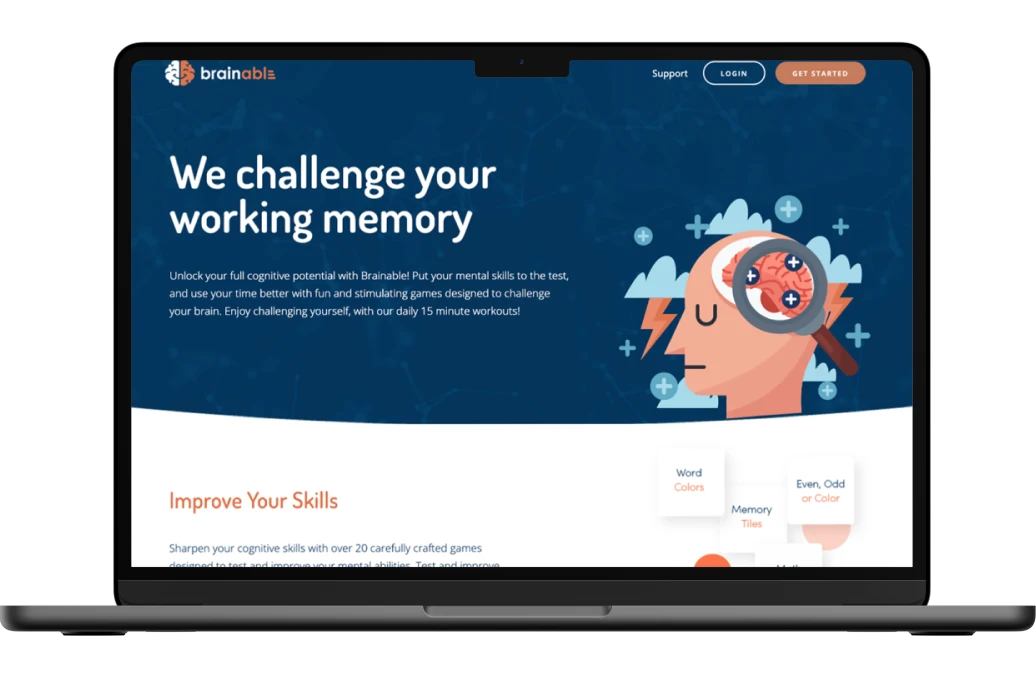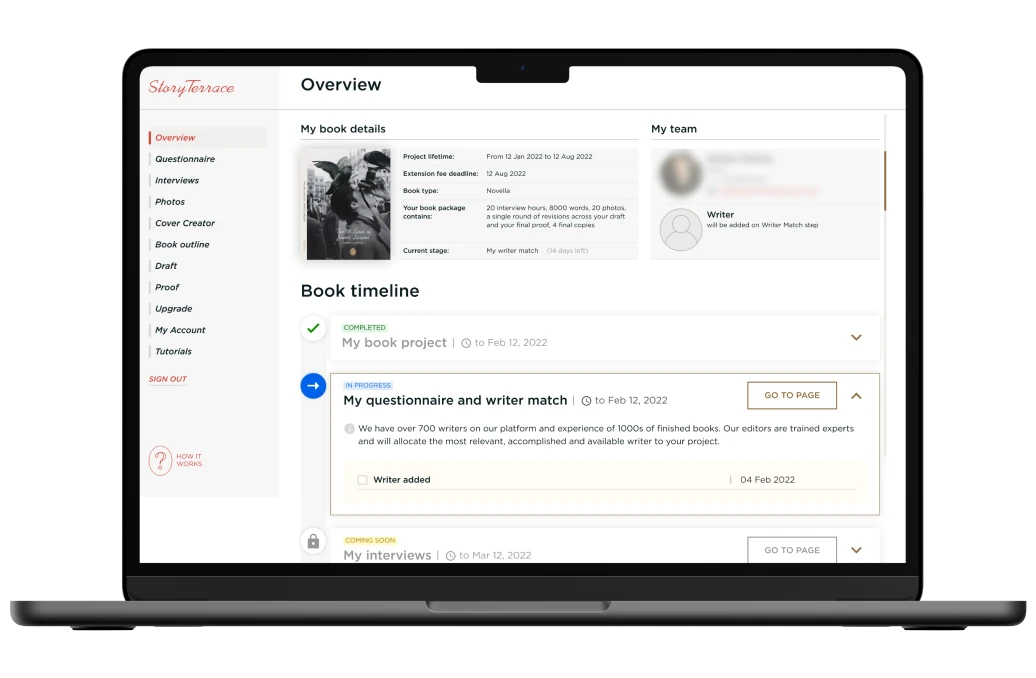The real estate sector is undergoing a major digital transformation. Learn about the must-have features of real estate apps and other important factors to consider during their development in this article.
The real estate market is currently experiencing growth worldwide, driven by the significant expansion of the global economy and increasing disposable incomes in many nations over the last 30 years. According to Statista, the real estate market is expected to reach a valuation of $654 trillion by the end of 2025, with most of the expansion involving residential buildings. This means that real estate is likely to attract many investors these days due to its reliability and stability. As long as the global economy continues to grow, we can also expect a significant expansion of the real estate market. Considering the all-encompassing digitalization of human lives in the modern world, it is not surprising that many real estate companies are now willing to invest in digital transformation, with a special emphasis on real estate mobile app development.
In this article, we want to review the current state of real estate app development and outline both its core and additional features.
Real Estate Mobile App: Definition
A real estate mobile app is a mobile-centric application that provides services related to real estate. While this definition is seemingly straightforward, it conceals many technical and format-related characteristics that you need to consider before starting real estate app development. Firstly, we can split mobile apps into those that simply supplement an already existing real estate service and those that offer advanced features that are business-defining. This distinction is highly vital because some modern real estate services are digitalization-dependent, while others are merely digitalization-enhanced.
Secondly, real estate mobile apps can be categorized into two types: mobile-only and multiplatform. Mobile-only apps typically center on one or two mobile platforms (iOS or Android), targeting markets with numerous mobile users and offering functions optimized for these platforms. Multiplatform apps can use a mobile platform as a central version, as an equivalent to others, or as a supplement to desktop and web tools. These apps usually target complex tasks that can’t be performed without a computer or markets where smartphones are less popular than personal computers.
Real Estate Mobile Apps: Key Types

There are multiple types of apps that one can create during real estate software development according to their general functions and goals:
Apps for property search
One of the most popular reasons for using a real estate mobile app is to enhance property search. Finding a property for rent or purchase is not easy; in the past, consumers had to personally visit every location and engage in prolonged communication with brokers. Today, this problem is often solved via apps, which provide consumers with sufficient information to gain a general understanding of the market in their area and, more importantly, of the properties they are interested in buying.
This factor greatly simplifies the work of brokers, enabling them to enhance customer satisfaction and increase the number of closed sales. It is likely one of the main reasons why app development costs rarely stop real estate companies from investing in mobile app development. In many cases, the complexities of the app development process are genuinely worth it, allowing businesses to enjoy a significant increase in their metrics after product release.
Apps for real estate agents
Real estate agents frequently must perform numerous complex tasks to deliver high-quality services to their customers. They must engage in an active property search and have a thorough understanding of the general trends in the real estate market. In this light, modern software provides numerous tools that can significantly simplify these tasks. Firstly, modern app markets offer numerous specialized and general tools for enhancing search. Some of them even utilize AI, greatly improving the capabilities of experts to conduct complex research. Secondly, many apps substantially reduce paperwork, enabling many real estate experts to quickly sign essential documents or prepare reports for their clients.
Lastly, some apps greatly enhance communication between real estate experts by, for example, allowing them to share information about different properties. These databases, known as Multiple Listing Services, were among the first tools affected by concentrated real estate app development efforts. All in all, real estate brokers need mobile apps because they simplify many of their everyday work processes.
Software for real estate investing
Many people consider real estate to be one of the best investment options. The real estate market is growing due to rising demand worldwide; as a result, many recently built properties appreciate quickly, providing their owners with substantial returns on investment. Many properties built on the modern market are not only appreciating assets; they also offer many opportunities for direct revenue. For example, trade centers can gain significant profits from offering lease agreements and hosting various events.
Residential structures created for leasing in the first place also provide outstanding returns on investments if their placement is optimal. Thus, real estate offers a large variety of investment options today. Investors with experience in real estate can create portfolios of managed and collectively owned properties, as well as personally owned properties, to ensure a high return on investment. Ultimately, one of the essential features here is the combination of expertise on the part of the app creators and, at the same time, high-quality security tools on the technical side. This combination will allow real estate investors to enjoy a reliable service in the long term.
Apps for managing properties
Another type of software that fits the real estate mobile app development profile is property management software. We often note in our blog that the real estate market is not only buying properties but also maintaining them. Many properties offer an opportunity to make a profit beyond their general appreciation. You also have the opportunity to earn money by leasing them to businesses or individual renters for residential purposes. For this reason, many customers want to invest in features for a real estate app that target property maintenance, financial management, and tenant communication. There are many types of property management apps on the market. To learn more, you can read our dedicated article that offers a thorough description of this app type.
Apps for calculating mortgages
Since real estate properties tend to appreciate and are usually expensive altogether, many people consider it rational to invest in real estate through mortgages. Mortgages in the modern markets offer a vast variety of options for real estate buyers. Some are short but have high interest; others are long but offer very low interest rates. In many cases, it is challenging to determine the exact amount a consumer would pay for a house with a mortgage, considering various factors relevant to the calculation of those prices, such as state taxes and regulations regarding interest rates.
Mortgage calculators streamline mortgage decision-making by allowing consumers to quickly calculate the differences between mortgage plans and understand which ones fit their investment needs. While they may seem relatively straightforward, we still decided to include mortgage calculators in our guide to real estate apps. Why is this the case? Yes, there are many solutions of this kind on app stores these days. Nonetheless, some countries and regions, as well as certain industries, have unique rules for property mortgages, making this type of app a viable direction for real estate app development.
Benefits of Real Estate Mobile App Development
The benefits of real estate mobile app development are evident for all stakeholders in the real estate market. Consumers typically receive better access to information and can enjoy higher-quality real estate services since there is no longer a need to visit real estate company offices or rely on paper sources that often receive sporadic updates. App providers usually have better access to market information thanks to these apps and can streamline communication with customers; all this allows them to complete many more real estate deals than before digitalization. These benefits appeared during the pre-AI era; now, by improving your app with AI, you can further expand the benefits of those apps by offering personalized recommendations and providing in-depth search and analytics capabilities. A good way to improve the app is also to consider technologies like Blockchain and quantum-resistant encryption, which will allow for achieving unprecedented transparency and unparalleled security levels.
Must-Have Features for Real Estate Mobile Apps

In our opinion, real estate mobile apps should have a set of must-have features that all app developers should consider. While some of them may be more specific for search-oriented apps, and others may be more relevant for property management apps, they generally benefit every product:
Filters for search
All real estate apps require some search features, either for properties or for specific property management functions. One of the most effective ways to enhance search features is the inclusion of filters that enable users to exclude specific keywords from the search results. Therefore, we highly recommend considering this function if you decide to build a real estate app. It can genuinely save a lot of time for many users.
Map tools
Maps are essential for all stakeholders in the real estate sector. Consumers can use maps to locate specific properties. In turn, experts investing in real estate can use this feature to manage their portfolios. Property locations are not always easy to find and can be challenging to integrate into mainstream apps. By incorporating your custom map tools during real estate mobile app development, you can significantly enhance the usability of your app.
Administrator instruments
For the app owners, controlling different variables within an app or having a centralized dashboard for data collection is vital. For this reason, administrator dashboards are among the must-have features for most real estate apps today. Using them, you can respond to customer requests, update information, and have a general overview of the real estate market.
Chat integration
Real estate services often require extensive communication and coordination. Real estate brokers must communicate with different stakeholders to sell properties in the first place. Property managers usually have to communicate with tenants to ensure timely utility payments and resolve issues related to service quality. Many companies are investing in real estate apps today because of this need: in many cases, using third-party chat programs is inconvenient. Some chat apps are simply unsupported by particular mobile platforms, creating major inconveniences for many consumers. In other situations, they do not meet real estate software security standards. A properly integrated chat solves this problem once and for all, providing the most flexible tool for all stakeholders.
Review booking capabilities
This feature is mainly relevant to real estate search and purchase apps. While photographs, videos, and 3D sketches typically provide a wealth of significant information to potential real estate buyers, they are often insufficient for making a final decision. In many situations, one needs to personally inspect a property to form a final opinion on it. Booking these reviews can be pretty difficult in many cases because third-party booking apps are often not well-suited to the specific needs of real estate stakeholders. Therefore, when you build a real estate app, it may be a rational decision to consider booking capabilities for your app.
User-friendly sign-up
It is essential to provide user-friendly sign-up tools in your real estate app today. Many people are very likely to forego an app if it has a lengthy sign-up process. For example, even traditional sign-up via email confirmation, which was standard for IT ten years ago, is likely to distance some users. Instead, it is often better to use the sign-up services of companies like Google and Apple, which allow one to create accounts in two to four steps (as opposed to 20+ in traditional sign-ups). The faster your sign-up process is, the better; thus, every professional real estate mobile app must have this feature today. Real estate app development is no longer about features alone: many users want maximum convenience.
Calculators for property cost
Proper assessment of property cost is among the most critical tasks of real estate experts. For this reason, when you build a real estate app, it may be a good idea to consider tools that simplify this process for real estate experts. There are numerous complex formulas for assessing property costs, and many of them depend on specific circumstances and environmental factors. In this light, professionals in the real estate sector are likely to appreciate the addition of tools that simplify their work by automating many aspects of property cost calculations.
Best Tech Stacks for Real Estate Mobile App Development

Real estate agencies need to carefully consider the tech stack of their real estate apps. Let’s review some of the core technologies that can assist with real estate app development:
Programming languages
Some of the most common programming languages for real estate app development include JavaScript, Python, Ruby, Swift, and Kotlin. In many cases, it may be a good idea to combine them by assigning backend development to platforms like Python and, in some instances, Kotlin; in turn, JavaScript and Swift are often great for handling the frontend user interface requirements of real estate agents and buyers.
Development frameworks for mobile apps
Regarding the development frameworks for mobile apps (both general-purpose and those targeting the real estate sector), one should pay attention to platforms such as React Native, Flutter, Ionic, and .NET MAUI. Once again, our recommendation is not to use a single platform when building real estate apps, but to combine them, maximizing their benefits for different parts of app design.
Backend technologies
As for the backend technologies targeting real estate app development requirements, many options are available to developers today as well. One can use tools like Node.js, Django, Ruby on Rails, Spring Boot, or Firebase.
Database integration tools
If you want to create a real estate app, an excellent idea is to use database integration tools that are well-tested within the industry. Some of these tools include apps such as SQLite, RealmDB, and Firebase Realtime Database.
Additional technologies
Regarding the additional technologies, we primarily recommend exploring options that can streamline secondary aspects of development. For example, it may sometimes be easier to create landings or specific app versions using no-code or low-code tools like Webflow and Bubble. This aspect is especially vital for companies that work within the real estate industry sectors that are evolving fast, thus requiring quick adaptation to market changes.
Advanced Features of Real Estate Software Development Services
Modern technological advancements enable developers to add numerous features that can completely transform the real estate market:
Artificial intelligence
Artificial intelligence (AI) is among the most impressive technological breakthroughs ever achieved by humankind. Although the technology is currently in the early stages of development, we can expect to see even more impressive AI capabilities in the years to come. Today, artificial intelligence is capable of solving very complex tasks related to textual analysis. Since the majority of the Internet is text-based, this means that AI can benefit from the accumulated knowledge of all humankind. Real estate apps can, in turn, draw advantages from the use of this technology, and modern experts must carefully consider it when developing real estate mobile applications. Today, it can enhance search capabilities for many businesses and allow them to automate communication for some standard consumer requests. In this light, AI is now among the most common technologies that consumers request to integrate when they want to develop a real estate app.
Blockchain
The Blockchain is also transforming the world at an ever-increasing pace. This technology allows its users to store immutable records of their transactions. This is highly vital for many users of real estate mobile apps because transparency and smart contracts significantly decrease the risks associated with the real estate sector. For example, tenants using Blockchain for transactions can receive complete proof of their transactions. In turn, companies developing a real estate mobile app can benefit from the integration of alternative payment methods and straightforward document management.
Cloud computing
Real estate mobile app development is among the core steps in the digitalization of this sector. One of the core goals of digitalization is the ability to transfer a significant part of real estate activities to the Internet. Cloud computing represents online storage that improves user access and secures user data through high-quality backup infrastructure. Therefore, the addition of cloud services for document storage and, for example, app hosting should be among the most important goals in real estate app development, as it significantly improves users’ capability to not only digitalize processes but also do this online and from any location.
AR/VR
Augmented and virtual reality was created primarily with the entertainment sector in mind. However, this technology offers many capabilities for simplifying tasks in the real estate sector. Firstly, it can help users present specific properties by offering VR previews. Secondly, one can utilize augmented reality to provide customers with additional details during home reviews. Virtual reality has the potential to act as a strong communication tool in the future by offering users a convenient space for business conversations. Many possibilities in this sector remain undiscovered, so they are awaiting a real estate startup that will transform them into a powerful product by carefully integrating existing technologies.
Development Process for Real Estate Apps

In our opinion, there are five major stages of real estate app development. Let’s review them:
Discovery
During the discovery stage of real estate application development, app creators come up with a specific idea targeting a particular issue their customers face and brainstorm ways to solve it. Often, the resulting apps are significantly different from the original app ideas, which typically serve as the motivation for initiating the discovery stage. It is crucial not to rely solely on one’s intuitions here but also to target empirical evidence via thorough market research.
Design
Once you have agreed on the overall purpose of your app, it’s time to design it. At this stage of real estate app development, one should consider not only the visual design but also the overall architecture of the app. In short, it is mainly about creating an outline of your app that will later be turned into a real product by coders.
App Development
This stage is the most obvious: here, developers hired by your company code the app and bring it to life. Multiple ways to organize this process exist. You can employ your in-house team. In other situations, a good idea is to try outstaffing or outsourcing. All pathways can lead to the development of a successful real estate mobile app as long as you establish proper communication and management.
Testing
After development or reaching some core milestones, it is vital to test your app for any bugs. The absence of technical problems is crucial in the real estate sector, as it involves a significant amount of sensitive data and complex transactions. Therefore, testing is often the most critical stage of app development, since the absence of bugs is among the most essential features for most consumers.
Launch and Support
The final stage of development is the launch of your app, followed by its ongoing support. In many cases, this is a crucial stage of real estate app development because many people judge products by the first impressions they create, and a problematic launch can create very negative feelings among the user base. Further post-launch development is also very vital because it allows many companies to add features that are widely requested by their audience and remove imperfections that were impossible to predict in the initial stages of development.
Real Estate App Development: Cost Considerations
Real estate app development is a diverse field that enables the development of apps with varying budgets. Smaller apps aimed at mortgage calculation or basic real estate search can involve relatively small budgets (between 10 and 50 thousand USD/EUR). Bigger products can exceed this sum by hundreds of thousands and even millions. Here, everything depends on the ambitions of specific real estate companies. The best way to estimate the cost of your app is to consult with developers who have real experience for an assessment. Our company, Keenethics, for example, can offer such an assessment.
Why Keenethics for Real Estate App Development?
Keenethics is a perfect choice for your real estate app development company for three reasons. Firstly, our company has over ten years of experience in developing custom software solutions for a diverse range of sectors, including manufacturing, publishing, and finance. Secondly, and more importantly, we have developed multiple real estate apps tailored to very different customer needs (you can find out more in the Case Study section of our website). Thirdly, Keenethics utilizes a tech stack centered on web and mobile technologies, with extensive experience in combining them to create complex and high-quality products. Our developers possess the expertise to develop software, have vast experience in web and mobile development, and understand the specific needs of the real estate sector.
Wrapping Up
To summarize, the real estate sector currently needs high-quality apps. Many processes within the industry involve a significant amount of paperwork or require substantial time investments from all stakeholders (for instance, reviewing various properties). Thus, the absolute majority of companies in the sector can optimize something with the help of those tools. The digitalization of the real estate sector is already underway, and the faster you manage to digitalize, the better, as software availability is among the core business requirements today.
Contact Keenethics to find out more!
FAQ
Why should real estate businesses invest in mobile apps?
Mobile apps are essential for real estate businesses because they enable consumers to search for properties or manage their real estate in a convenient manner and from any location. Moreover, smartphones have the largest market share in modern hardware markets, allowing software developers to maximize their reach by targeting mobile platforms.
What is the average development time for a real estate app?
Everything greatly depends on the scope of your app. The average development time is between two and four months. In other cases, however, development can take more time: large projects often require a year or longer for their completion. For this reason, large projects can benefit from an MVP, which typically requires three to four months for completion.
What technologies can one use for real estate app development?
There are many options available for real estate app development. You can use Node.js, Ruby on Rails, Python, React Native, Firebase, and many other technologies. In our opinion, the best approach is to select your tech stack after the initial discovery phase, thereby optimizing technology benefits without being tied to specific options prematurely.
What are the core features of a real estate app?
Once again, everything depends on the particular needs of your business. Some apps need search features and AI integration. Others can benefit from chat integration. In many cases, a combination of all those features is essential.
Would it be possible to integrate third-party services into my real estate app?
Yes, it is possible, and modern technology greatly simplifies this task. One can integrate MLS systems, financial platforms, and chat technology into their apps very quickly due to the availability of high-quality APIs.
How do you choose the right development team when developing a real estate app?
You should look for three core factors: overall experience on the market, experience in developing software for particular hardware (for instance, smartphones), and relevant experience in real estate app development. Positive reviews are also essential, as they indicate whether a development team or company excels in communication and is capable of effectively organizing the work of software development experts.












